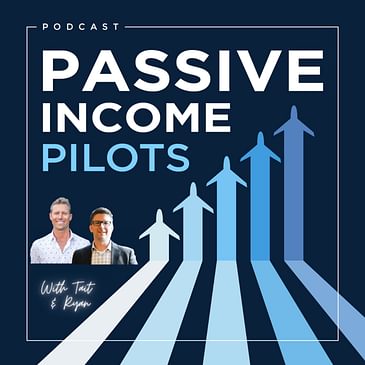In today's episode hosts Tait Duryea and Ryan Gibson navigate through the vast skies of real estate investing with the guidance of real estate titan, Kathy Fettke. As a renowned expert and a beacon of knowledge in real estate and economics, Kathy brings invaluable insights into the current real estate market, investment strategies, and the future of property investment. Whether you're at the helm of your real estate journey or just preparing for takeoff, this episode promises to elevate your understanding of real estate investments and economic trends.
Timestamped Show Notes:
(00:00:00) Introduction to Passive Income Pilots and Today’s Guest, Kathy Fettke.
(00:01:00) Kathy Fettke’s Background: From Broadcast Journalism to Real Estate Mogul.
(00:03:00) Empowering Women in Finance and Investing.
(00:06:00) The Catalysts for Kathy’s Real Estate Journey: Personal Challenges and Insights.
(00:08:00) Analyzing the Economic Impacts of the Pandemic on Real Estate.
(00:10:00) The Inflation Effect: Money Supply and Real Estate Dynamics.
(00:12:00) Navigating Interest Rates and the Surprising Resilience of the Economy.
(00:14:00) The Resilient U.S. Economy: A Deep Dive into the Money Supply and Investment Strategies.
(00:17:00) 2008 vs. Now: How Today’s Real Estate Market Differs from the Past.
(00:22:00) The Future of Real Estate: Understanding Current Trends and Preparing for What’s Next.
(00:24:00) The Role of Office and Commercial Real Estate in Today’s Market.
(00:27:00) Kathy’s Advice for New Investors: Simplifying the Path to Real Estate Investment.
(00:30:00) The Pitfalls to Avoid in Real Estate Investing.
(00:33:00) The Allure and Risks of "Exciting" Real Estate Projects.
(00:36:00) The Benefits of Investing in Real Estate: Tax Advantages and Long-Term Growth.
(00:38:00) Overcoming Personal and Financial Challenges Through Real Estate.
(00:41:00) Real Estate Strategies for Busy Professionals: Finding the Right Investments.
(00:43:00) Selecting Low-Maintenance Real Estate Investments Suitable for Busy Lives.
(00:46:00) Resources and Advice for Those New to Real Estate Investing.
Resources Mentioned
- Connect With Kathy: Real Wealth Network
- Federal Reserve of St. Louis Money Supply
- How to Conduct Due Diligence on an Investment Webinar
- Get Featured On The Show!: passiveincomepilots.com/question
---You've found the number one resource for financial education for aviators! Please consider leaving a rating and sharing this podcast with your colleagues in the aviation community, as it can serve as a valuable resource for all those involved in the industry.
Remember to subscribe for more insights at PassiveIncomePilots.com!
Join our growing community on Facebook
Check us out on Instagram @PassiveIncomePilots
Follow us on X @IncomePilots
Get our updates on LinkedIn
Have questions or want to discuss this episode? Contact us at ask@passiveincomepilots.com See you on the next one!
Legal Disclaimer
The content of this podcast is provided solely for educational and informational purposes. The views and opinions expressed are those of the hosts, Tait Duryea and Ryan Gibson, and do not reflect those of any organization they are associated with, including Turbine Capital or Spartan Investment Group. The opinions of our guests are their own and should not be construed as financial advice. This podcast does not offer tax, legal, or investment advice. Listeners are advised to consult with their own legal or financial counsel and to conduct their own due diligence before making any financial decisions. The hosts, Tait Duryea and Ryan Gibson, do not necessarily endorse the views of the guests featured on the podcast, nor have the guests been comprehensively vetted by the hosts. Under no circumstances should any material presented in this podcast be used or considered as an offer to sell, or a solicitation of any offer to buy, an interest in any investment.

